Photos: Haiti elections
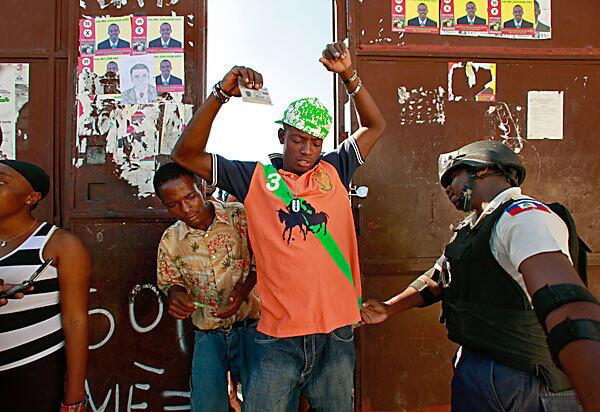
In Port-au-Prince’s Cite Soleil neighborhood, voters are frisked by police on the way into the polling station. Haitians are voting on a new president but frustrations are high and many people left polling polling stations without casting their votes. (Carolyn Cole / Los Angeles Times)
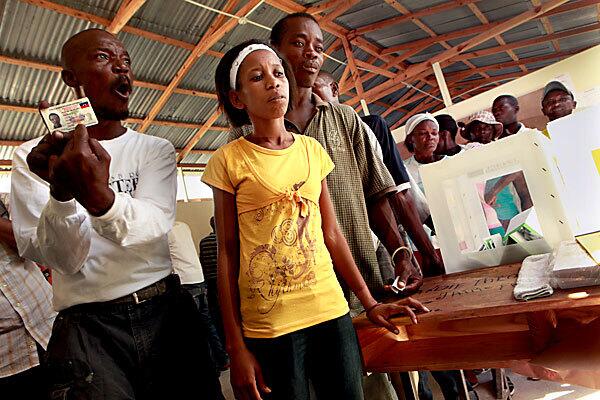
Etianne Petit Frere, 23, waits with other frustrated voters at a polling station in Cite Soleil, where she had been trying to vote for hours, but could not find her name on the rosters. Etianne lost one child in the earthquake when the roof of her house collapsed. She also lost her home and her job and is barely getting by. (Carolyn Cole / Los Angeles Times)
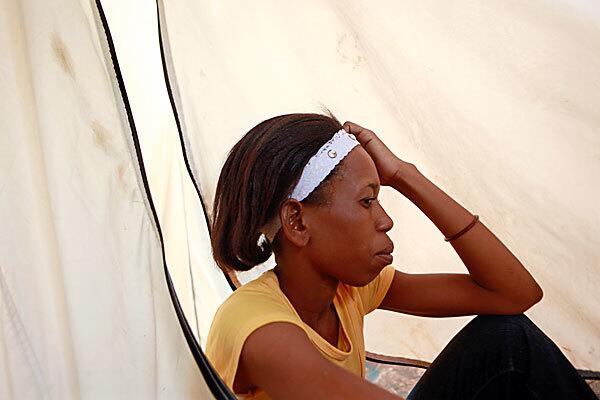
Etianne Petit Frere, 23, lives in a tent with her two surviving children; one died in the Jan. 12 earthquake. (Carolyn Cole / Los Angeles Times)
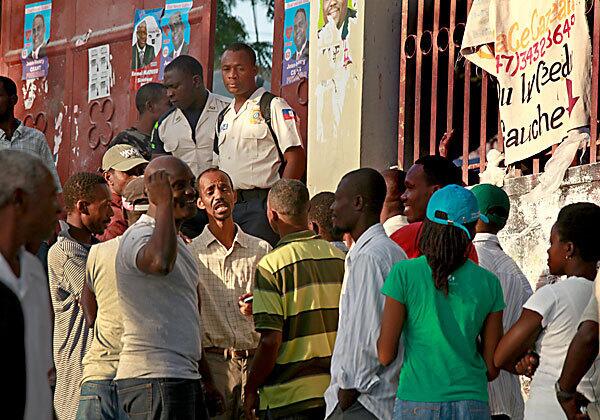
Voters form a queue as they wait for their polling station in Delmas to open; polling workers were counting ballots. (Carolyn Cole / Los Angeles Times)
Advertisement
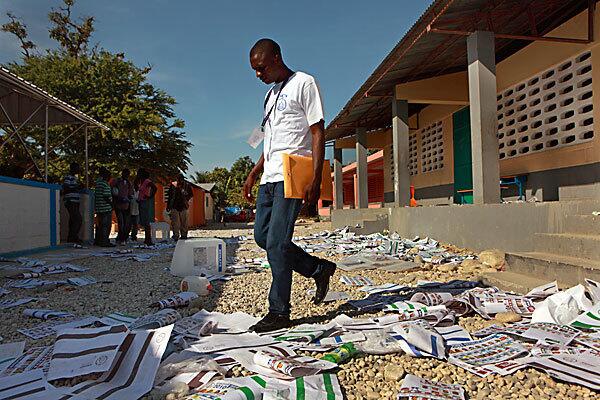
Ballots and boxes litter the ground as a poll worker leaves after the the National School of Tabarre polling station in Port-au-Prince is shut down because of violence. Frustrated residents who had been turned away ransacked the place. (Carolyn Cole / Los Angeles Times)
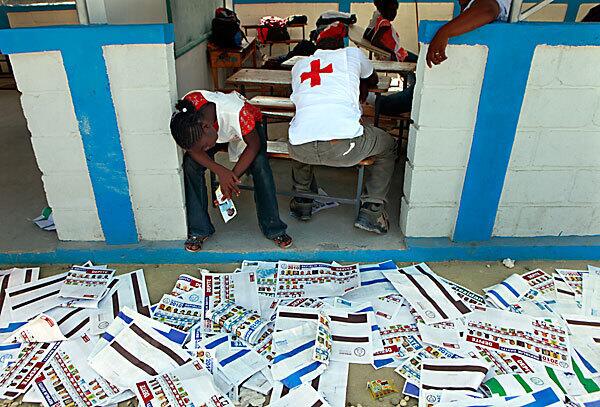
Ballots litter the ground at the National School of Tabarre polling station, which was ransacked by frustrated residents who had been turned away from the polls. (Carolyn Cole / Los Angeles Times)
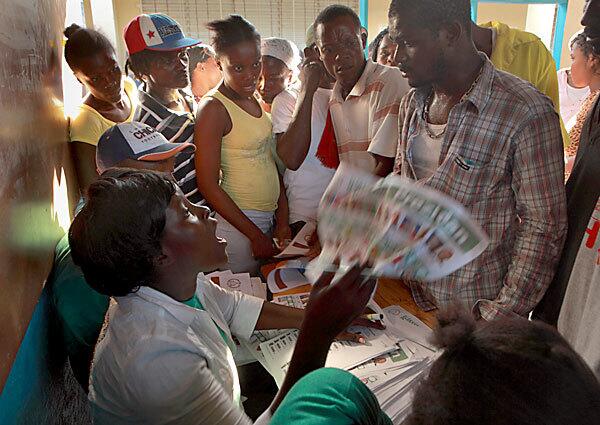
Despite the efforts of poll workers, chaos broke out at many polling stations, including in Cite Soleil. (Carolyn Cole / Los Angeles Times)
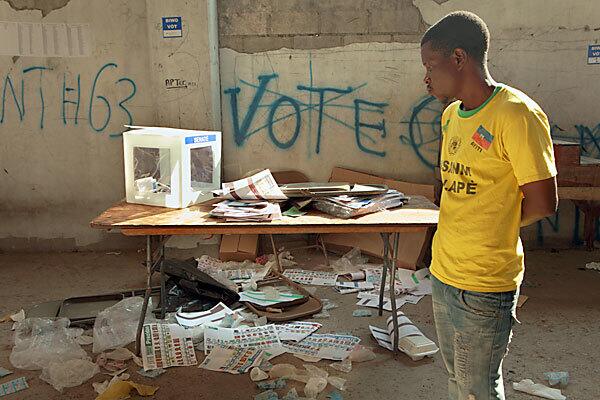
Ballot papers litter the ground of a polling station where frustrated Haitians ransacked the place after they were turned away from the polls. The polling stations was closed due to the violence. (Carolyn Cole / Los Angeles Times)
Advertisement
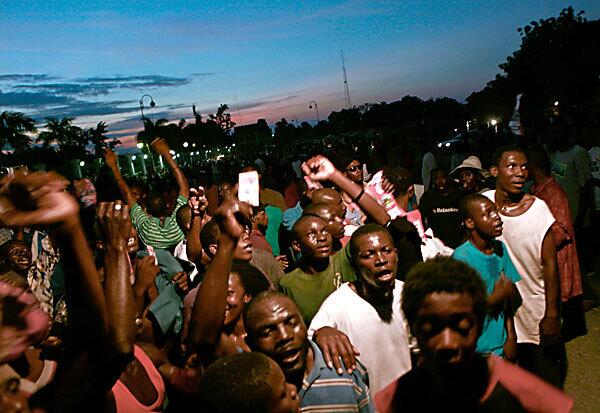
After a day of frustration, thousands of Haitian protesters took to the streets, voicing their dislike of the ruling party. They gathered in front of the former presidential palace, which collapsed in the January earthquake. (Carolyn Cole / Los Angeles Times)
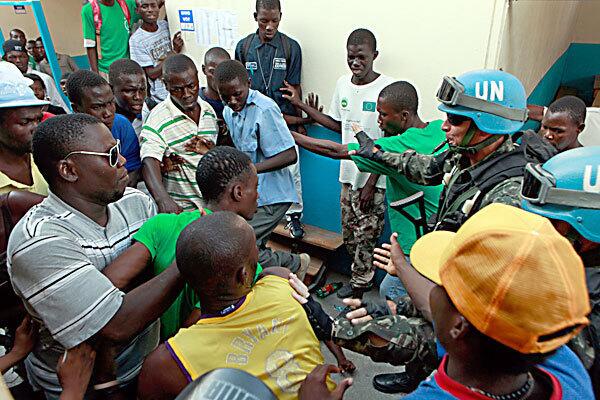
United Nations troops break up a fight between two voters at a polling station in Cite Soleil, a poor neighborhood of Port-au-Prince. (Carolyn Cole / Los Angeles Times)
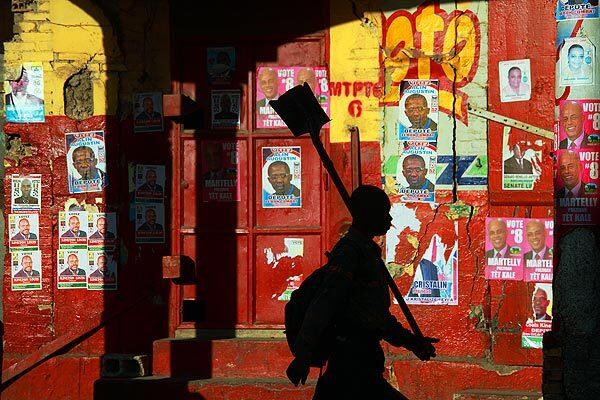
Haitians go to the polls Sunday to elect a new president, choosing from 18 candidates. Many Haitians are still struggling to survive day to day. A man going to work carrying a shovel in downtown Port-au-Prince, the capital, passes numerous political posters. (Carolyn Cole / Los Angeles Times)
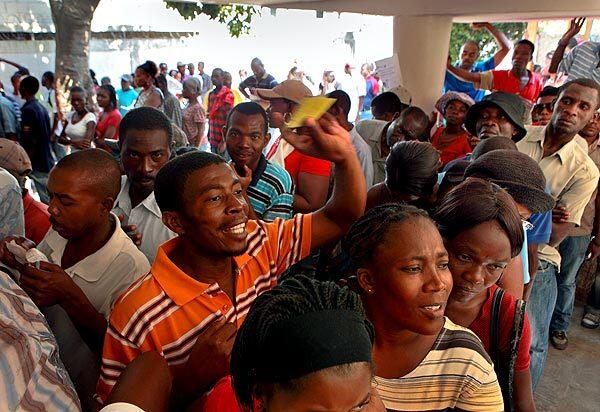
After waiting hours in line many Haitians were unable to get their voter cards because of lack of identification or system problems. (Carolyn Cole / Los Angeles Times)
Advertisement
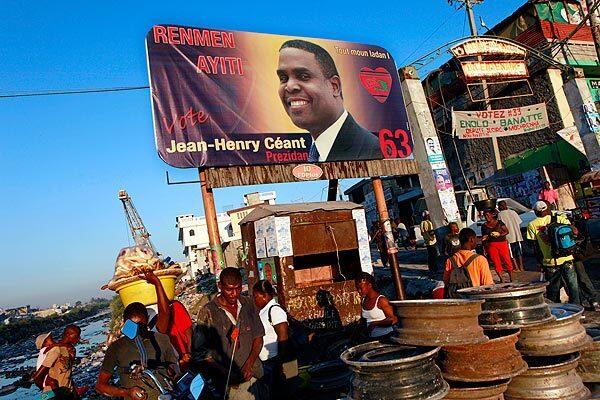
Haitians are still trying to recover from the January earthquake that took thousands of lives and homes. At the entrance to the Port-au-Prince neighborhood of Bicentenaire, people begin their workday at sunrise. (Carolyn Cole / Los Angeles Times)
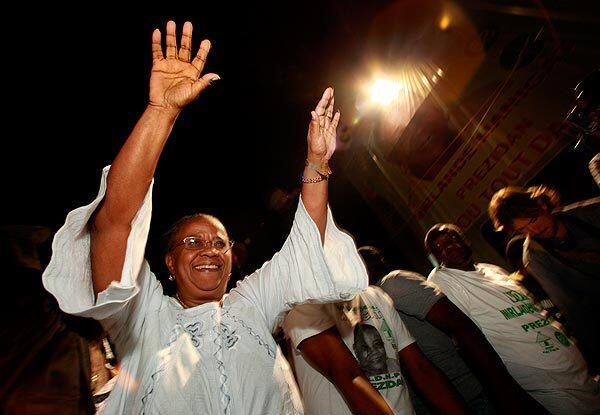
Presidential candidate Mirlande Manigat, the wife of a former president, appears at a Friday night campaign rally. (Carolyn Cole / Los Angeles Times)
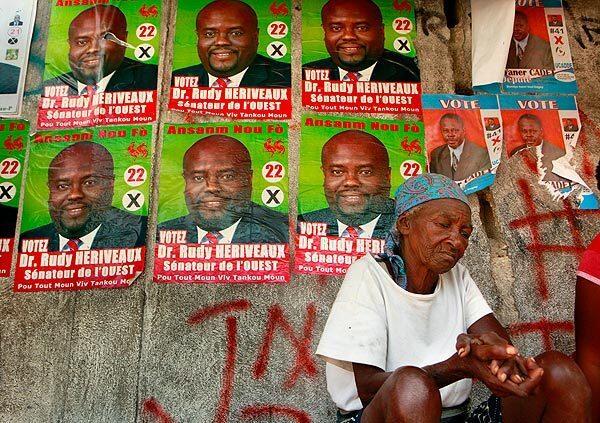
Many Haitians are still suffering from the catastrophic destruction of the January earthquake. Ednord Dejuste, 70, lost her home and three family members. She sells bananas on the street in Port-au-Prince. She says she can’t vote because she lost all her identification in the quake. (Carolyn Cole / Los Angeles Times)
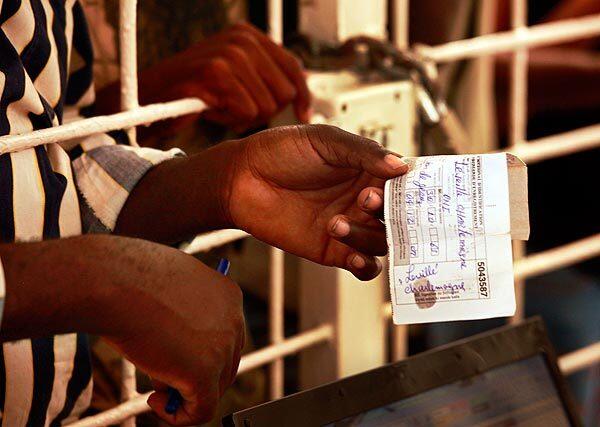
A Haitian holds an identification document in an effort to get his voter card. Many waited frustrated in line outside government offices. (Carolyn Cole / Los Angeles Times)
Advertisement
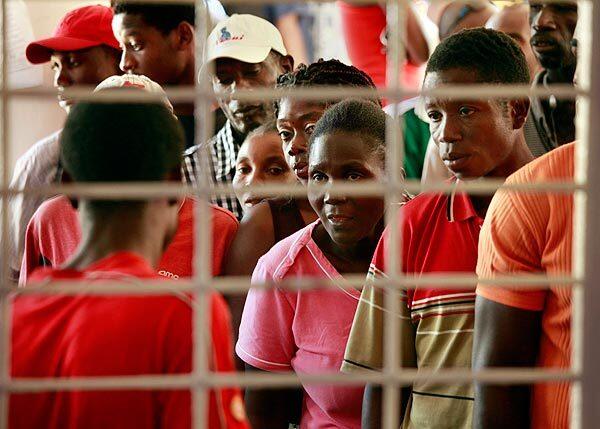
Haitians seeking to obtain voter cards wait in line. (Carolyn Cole / Los Angeles Times)
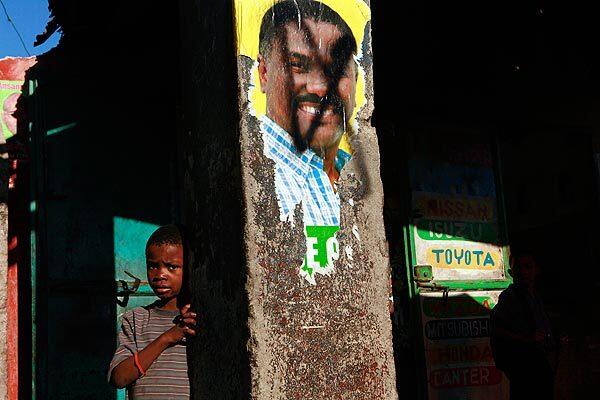
A poster for Haitian presidential candidate Jude Celestin, the current president’s pick, has been defaced, possibly showing disapproval of the current government. The young boy stands in the shadow of a downtown business district where auto parts are sold. (Carolyn Cole / Los Angeles Times)
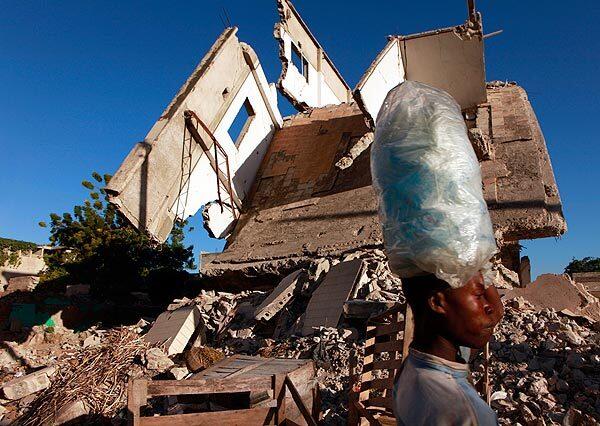
Damage from the January earthquake is still present throughout Port-au-Prince, where a man sells small baggies of water on the street, one of the ways Haitians get drinking water. (Carolyn Cole / Los Angeles Times)



